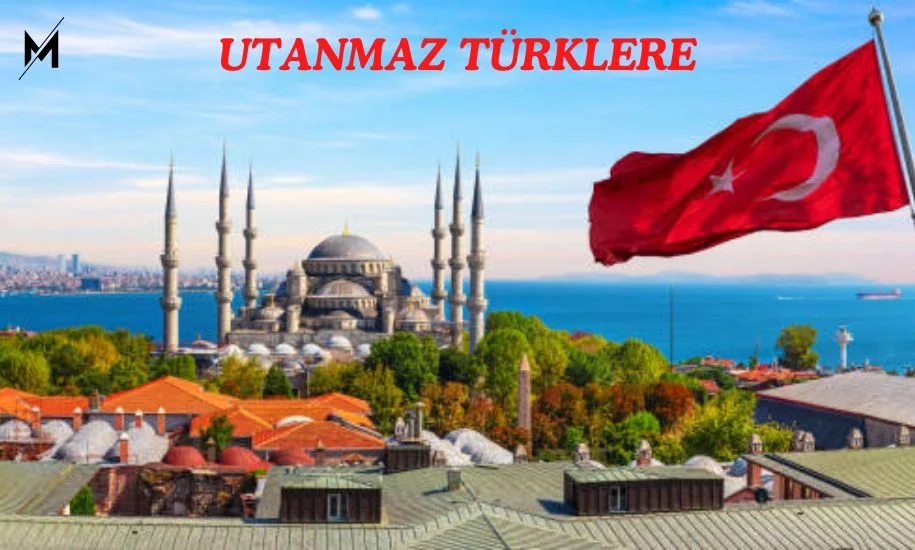Turkey, a land where East meets West, holds an incredibly rich and diverse history, culture, and identity. With influences spanning centuries, Turkish heritage is marked by an unparalleled mix of traditions, arts, and values that have left an indelible mark on the world. However, beyond the fascinating history, what truly defines modern Turkish identity is a profound sense of pride—Turkish pride that flows through every aspect of life, from language to cultural customs, food, and family ties.
This article explores the depth of Turkish heritage, its roots, and how Turks everywhere can embrace and carry forward this vibrant cultural identity with pride.
The Rich Tapestry of Turkish Heritage
A Glimpse into Turkish History
To understand Turkish pride, one must first delve into the nation’s vast history. Turkey, historically known as the heart of the Ottoman Empire, boasts a civilization that stretches back thousands of years. From the days of ancient Anatolia to the rise and influence of the Seljuks and Ottomans, Turkey has been a significant hub for trade, politics, and culture, bridging continents and empires.
Turks today stand on the shoulders of these historical giants. The Ottoman Empire, which lasted over 600 years, left a global legacy in architecture, literature, and governance. Even after its dissolution, the formation of the Republic of Turkey in 1923 under Mustafa Kemal Atatürk marked a transformative period in modern history, pushing forward principles of secularism, modernization, and nationalism.
Turkish Culture: A Mosaic of Influence
Turkey’s geographical position has allowed it to absorb a variety of cultural influences. Over the centuries, Persian, Arab, Greek, and Roman cultures blended with the Turkish way of life, creating a vibrant cultural mosaic. This combination of influences is evident in everything from Turkish cuisine—an eclectic fusion of Mediterranean, Middle Eastern, and Central Asian flavors—to its art, music, and architecture.
However, despite these influences, the Turks have always maintained a distinct cultural identity that is undeniably their own, one that reflects both resilience and openness.
What It Means to Have Turkish Pride
Preserving the Turkish Language
The Turkish language, with its rich, melodic cadence, is a cornerstone of national pride. Speaking Turkish is more than just a method of communication—it’s a connection to the past, a reflection of the soul of the Turkish people. It carries within it the poetry of Yunus Emre, the wisdom of Rumi, and the reforms of Atatürk, who simplified the language to make it accessible to all Turks.
Embracing Turkish heritage means understanding the importance of language. For many Turks, the continued use of their native language in all aspects of life, especially among younger generations, is a matter of national pride. Keeping the language alive, both within Turkey and abroad in the Turkish diaspora, helps preserve the cultural nuances that define Turkish identity.
Turkish Family Values
At the heart of Turkish cultural identity is the family. Turkish society places great importance on familial bonds, which are often multigenerational. Family gatherings, whether for celebrations, religious holidays, or simply weekly meals, are a testament to the value of kinship in Turkish culture. Respect for elders, a strong sense of duty towards family members, and close-knit relationships are deeply ingrained in the Turkish way of life.
This sense of unity within families mirrors the unity felt within the broader Turkish community. It is often said that Turkish people have a natural inclination towards generosity, warmth, and hospitality—qualities that are reflective of a collective pride in their shared heritage.
National Symbols of Pride
Symbols like the crescent and star on the Turkish flag, the majestic Hagia Sophia, and iconic Turkish coffee are not merely aspects of daily life but representations of a national spirit that has endured through time. The Turkish flag, in particular, stirs deep emotion. It’s flown not only during national holidays but also during celebrations of achievements and victories, both personal and collective.
Music, too, plays a pivotal role in expressing Turkish pride. Traditional Turkish folk songs, Ottoman military music (Mehter), and modern pop all echo the same spirit of resilience and unity that runs through the veins of the country.
Embracing Turkish Heritage in Modern Times
The Role of Atatürk and Secularism
One cannot discuss Turkish pride without acknowledging Mustafa Kemal Atatürk, the founder of modern Turkey. His leadership is a source of immense pride for Turks around the world. His vision of creating a secular, democratic, and modern nation-state remains a guiding force today.
Atatürk’s reforms, particularly in education, governance, and women’s rights, set the tone for a progressive Turkish identity. Embracing Turkish heritage also means continuing to uphold the values he set forth, striving for a society that balances modernization with respect for cultural traditions.
Cuisine: A Taste of Home
Turkish food is one of the most recognizable elements of Turkish heritage, known and loved across the globe. Turkish cuisine is a beautiful representation of the country’s diverse landscape—each region offers unique flavors, from the rich kebabs of the southeast to the fresh fish and olive oil dishes of the Aegean coast.
Embracing this aspect of Turkish culture means sharing these culinary delights with the world. Whether it’s preparing traditional dishes like baklava, dolma, or künefe, or even just sitting down to a strong cup of Turkish coffee, there is a sense of connection and pride in passing on these traditions.
Modern Arts and Cinema
While Turkish heritage is steeped in centuries of history, modern Turkish artists and filmmakers continue to push boundaries, drawing inspiration from the past while addressing contemporary issues. Turkish cinema, particularly with directors like Nuri Bilge Ceylan gaining international recognition, reflects both the country’s beauty and its socio-political struggles.
This fusion of past and present demonstrates that Turkish culture is not static—it evolves and grows, keeping its essence while adapting to new global realities. Turks can take pride in the fact that their artistic contributions continue to make waves on the world stage.
How Turks Can Embrace Their Heritage with Pride
Promoting Turkish Values Abroad
For Turks living abroad, embracing their heritage means finding ways to promote and celebrate Turkish culture in foreign lands. Whether it’s through cultural festivals, teaching Turkish to the next generation, or simply sharing Turkish customs with friends and neighbors, Turks can preserve their cultural identity while enriching the global community.
Protecting Cultural Traditions
In the face of globalization, it can be easy to lose touch with traditional practices. However, maintaining customs—whether through celebrating national holidays like Republic Day, teaching folk dances, or passing down recipes—is crucial for keeping Turkish heritage alive.
Fostering Unity
In a world where division and conflict often overshadow unity, Turks can lead by example by fostering solidarity. Turkish pride should not just be about individual accomplishments but about collective well-being. By standing together, both within Turkey and in the broader global Turkish community, Turks can ensure that their cultural heritage continues to thrive.
Frequently Asked Questions
What defines Turkish pride?
Turkish pride is rooted in a deep appreciation of Turkey’s rich history, cultural traditions, and collective values such as family, hospitality, and resilience.
How can I embrace Turkish heritage if I live abroad?
You can embrace Turkish heritage by participating in cultural events, teaching the Turkish language to younger generations, and preserving traditions like food, music, and customs.
Why is Atatürk important to Turkish identity?
Atatürk is central to Turkish identity because he founded the modern Republic of Turkey and implemented reforms that continue to shape the nation’s values, particularly regarding secularism and progress.
What are some examples of Turkish cultural symbols?
Turkish cultural symbols include the crescent and star on the national flag, Turkish coffee, the Hagia Sophia, traditional folk music, and key historical landmarks like Topkapı Palace.
How do Turkish family values influence cultural identity?
Family is the cornerstone of Turkish culture, with respect for elders, close-knit relationships, and frequent family gatherings playing a pivotal role in shaping a sense of community and continuity.
How can younger generations maintain Turkish pride?
Younger generations can maintain Turkish pride by staying connected to their roots, learning about Turkish history and culture, and passing on traditions such as language, food, and holidays.
Conclusion
Embracing Turkish pride and heritage is about more than just looking back at history—it’s about carrying the torch forward. From language and family values to food, music, and the arts, there are countless ways to celebrate the richness of Turkish culture. As Turkey continues to evolve on the global stage, Turks everywhere can find pride in their shared heritage, ensuring that their cultural identity remains vibrant and strong for generations to come.











